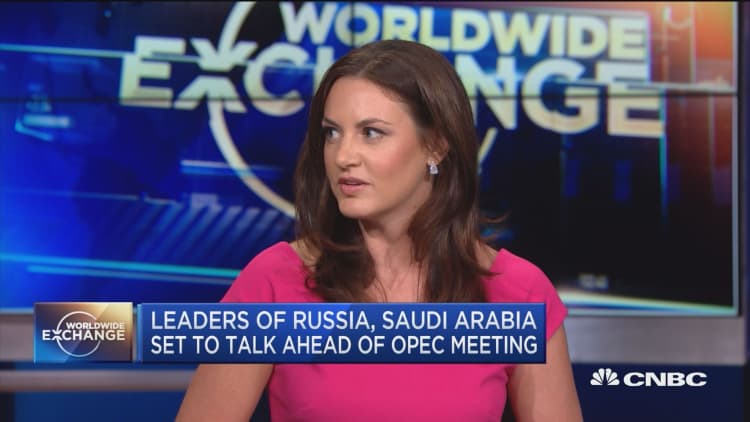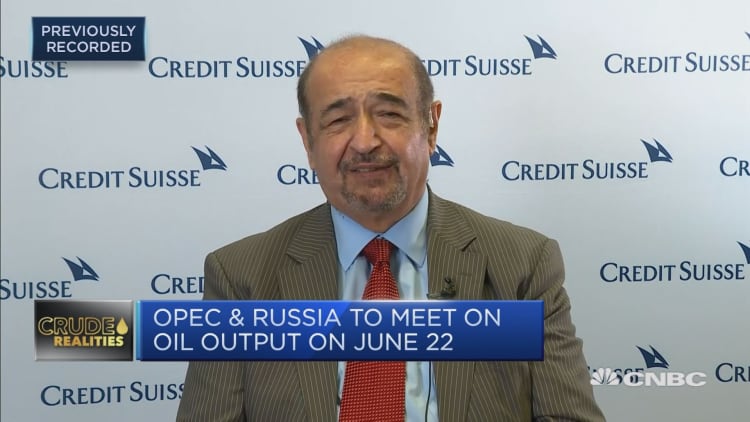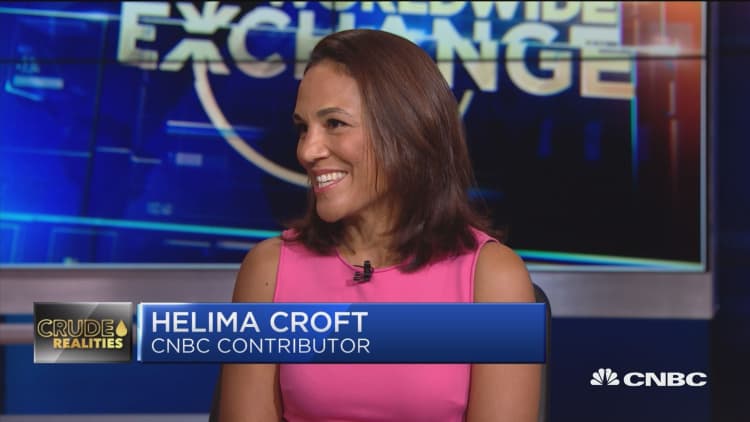A meeting of the world's biggest oil producers is shaping up to be a contentious event, but analysts think the fractious group will reach consensus on their historic agreement to manage the crude market.
OPEC and other exporters including Russia appear poised to ease voluntary production limits, which have helped shrink a global oil glut since they went into effect in January 2017. The deal isn't set to expire until the end of the year, but rising prices fueled largely by geopolitical risks have forced the producers to consider their exit strategy.
The agreement calls on OPEC and other producers to keep 1.8 million barrels a day off the market, but they've actually been cutting deeper than that.
OPEC meetings are closely watched because the producer group pumps about 40 percent of the world's oil, so its policy decisions can have major implications across the energy mix. President Donald Trump, perhaps wary of the average U.S. gasoline price hovering near $3 a gallon, has recently , which recently hit 3½-year highs.
@realDonaldTrump: Oil prices are too high, OPEC is at it again. Not good!
Next week's meeting is also thornier than past gatherings because OPEC's current production cuts are not limited to the 14-nation cartel. Russia and several other producers have also been throttling back output, and top OPEC producer Saudi Arabia needs to keep the young alliance together, or its ability to manage the market would be diminished.

The Saudis will have to consider their partnership with Russia, their relationship with the United States, and simmering tensions with Iran, OPEC's third-biggest producer and Riyadh's chief regional rival.
"The decisions that are going to be made in Vienna are going to be more geopolitical this time than normal," said Dan Yergin, vice chairman of IHS Markit and a Pulitzer Prize-winning chronicler of the petroleum industry.
OPEC tensions rise
Heading into the meeting, a rift has opened among producers with competing interests, raising fears of a repeat of OPEC's June 2011 meeting, when members left Vienna without agreeing on a shared output policy.
Saudi Arabia and Russia, in particular, have spare capacity and could capture market share by pumping more. Both have expressed support for hiking output.
However, many producers are tapped out and would prefer to hold back supply, which supports prices. Those nations include Venezuela, where output has cratered amid a prolonged economic crisis, and Iran, which is facing renewed U.S. sanctions aimed at cutting off its oil exports.
But they also include Iraq, OPEC's second-biggest producer. On Monday, the country's oil minister, Jabbar al-Luaibi, said hiking output could "damage the international markets" and warned unilateral efforts by some members to change the policy might violate the deal.
Luaibi appeared to be responding to reports that Washington asked Saudi Arabia to fill the gap left by a drop in Iranian exports before Trump abandoned the Iran nuclear deal and slapped wide-ranging sanctions on the country.
Yergin said he believes the Saudis would back a policy that keeps international benchmark oil prices in the $75-$85 per barrel range, which would support their objectives, including maintaining close ties with the Trump administration.
"They really wanted to see the U.S. withdraw from the Iranian deal, and that means less Iranian oil ... so you have to put more oil into the market," he told CNBC on Wednesday.
Deal remains likely
The public bickering could continue as members aim to negotiate the best possible deal for their country. But despite the discord, analysts think the group will nevertheless reach a deal to begin easing the production caps — and any increase will likely be relatively limited and gradual.
Ed Morse, Citigroup's head of global commodities research, told CNBC that the Saudis, along with Kuwait and the United Arab Emirates, will likely push for a 500,000 barrel per day hike, leaving another half a million barrel increase until a future review of the market, perhaps in September.
That aligns with the view at RBC Capital Markets, where the firm's global head of commodity strategy, Helima Croft, also sees OPEC erring on the side of caution with a 500,000 bpd bump. She thinks the cartel will signal a strong willingness to take further action, but she remains wary of tensions ahead of the meeting.

"Nonetheless, we could envision a scenario where the meeting proves to be so antagonistic because of deep divisions over production and sanctions that they fail to reach a consensus, leaving big producers like Saudi Arabia and Russia to act on their own," RBC said in a research note.
Michael Cohen, head of energy markets research at Barclays, said that would push oil prices into the $80-$85 range, but he thinks the scenario is unlikely. He forecasts OPEC will increase output by 700,000 to 800,000 bpd through the end of the year. If that happens, Barclays would stick to its view that Brent will average $70 a barrel this year and $65 next year.
Francisco Blanch, Bank of America Merrill Lynch's head of global commodities research, sees Russia, Saudi Arabia, UAE and Kuwait gradually increasing output by about 200,000 bpd each quarter, eventually adding 1.2 million bpd by the end of next year. In his view, the producers will make the adjustments based on oil market data to prevent a price spike.
"If the cartel aggressively lifts output over the next six months, balances will quickly shift into a surplus, pushing prices lower," Merrill Lynch said in a research note. "Yet the uncertainty around Iran and Venezuela also creates a difficult path ahead, as it opens the door to multiple OPEC+ responses."
WATCH: You could say Russia is now leading OPEC



